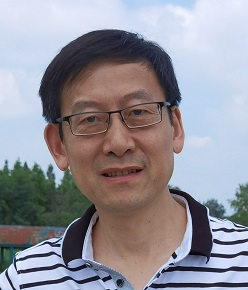
Prof. Kun Yang
School of Computer Science and Electronic Engineering,
University of Essex, UK
Title: Computation in Modern Mobile Communication Networks
Bio:
Prof. Yang received his Ph.D. from the Department of Electronic & Electrical Engineering of University College London (UCL), UK. He is currently a Chair Professor in the School of Computer Science & Electronic Engineering, University of Essex, UK, leading the Network Convergence Laboratory (NCL). He is also an affiliated professor of UESTC. His main research interests include wireless networks and communications, future Internet, and edge computing. In particular, he is interested in energy aspects of future communication systems such as 6G, promoting energy self-sustainability via both energy efficiency (green communications and networking) and energy harvesting (wireless charging). He has managed research projects funded by UK EPSRC, EU FP7/H2020, and industries. He has published 300+ papers and filed 20 patents with a Google Scholar citation of more than 10K. He serves on the editorial boards of a number of IEEE journals (e.g., IEEE ComMag, TNSE, WCL). He is a Deputy Editor-in-Chief of IET Smart Cities Journal. He has been a Judge of GSMA GLOMO Award at World Mobile Congress – Barcelona since 2019. He is a Member of Academia Europaea (MAE) and also a Distinguished Lecturer of IEEE ComSoc.
Abstract:
With 5G mobile communication systems being commercialized and deployed worldwide, research into next-generation communication systems (i.e., 6G) has rolled out since 2020. Computation is going to play a more important role in 6G in order for 6G to deliver its promises of being faster, greener and smarter. This talk starts with a brief introduction of 6G mobile communication systems, and then looks into how computation, and in particular artificial intelligence (AI) and machine learning (ML), comes into play in 6G from different perspectives. In addition to mobile edge computing (MEC) and edge intelligence, the talk presents a new data-driven communication system where the traditional building blocks at transceivers are designed in an integrated manner rather than separately by taking advantage of ML techniques, achieving better optimality and simpler design. Along the same line as data-driven or ML-driven methodology, this talk introduces some interesting new trends in mobile communication networks such as semantic communications, digital twin networks, and ISAC (Integrated Sensing and Communication), all from the perspective of how computation plays a role in advancing modern communication systems. The talk concludes with discussions on future opportunities and challenges in this exciting research area. The talk is easy to follow and is suitable for young researchers who just start their research study and for anybody who is interested in computing and/or wireless communications in general.

